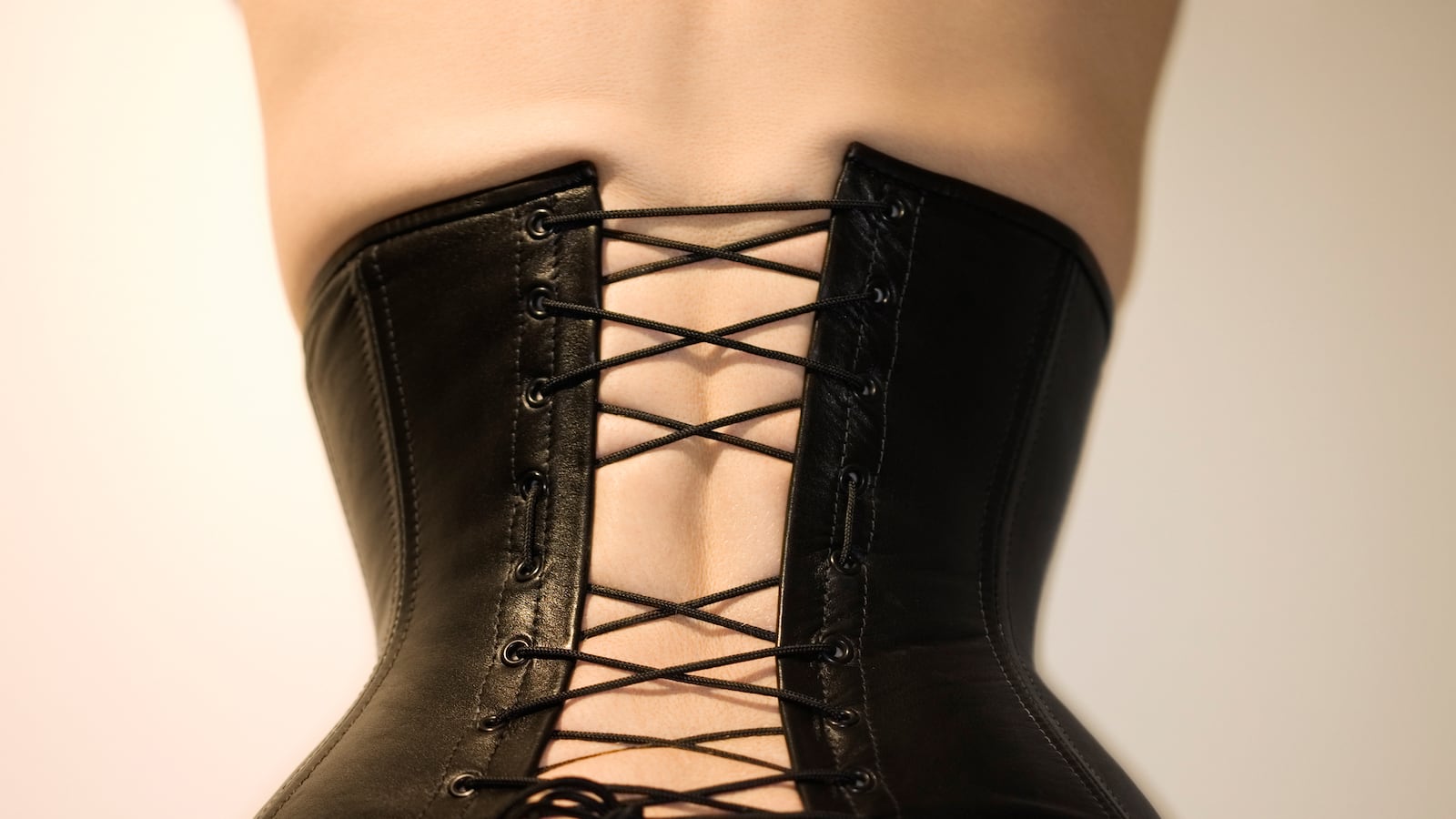
From cayenne pepper master cleanses to cotton balls, women have ingested a lot of weird items in an effort to lose weight. But the most recent weight loss trend actually isn’t about what you eat, but what you wear.
The corset diet is pretty much as simple as it sounds. Just as it was worn hundreds of years ago, corsets are being used today to reshape a woman’s body into an hourglass figure. It even has its own celebrity poster child. Jessica Alba revealed that she “wore a corset day and night for three months” to regain her body after each of her pregnancies.
While you shouldn’t expect to start instantly looking like Alba, the corset diet has a following. Adherents praise the garment, claiming that even without changing eating or exercise habits, just wearing it will lead to weight loss and a more stylish figure. According to TheCorsetDiet.com, you can shed up to six pounds a week from wearing a corset. Stephanie Jones of Texas says she has lost 24 pounds since she started wearing a corset regularly last August.
However, it’s important to note that a corset doesn’t cause a bodily transformation as magically as it appears to do. When you’re wearing something that tight around your abdomen, it pretty much kills your desire to overeat. The thought of a bloated stomach pressing against the stiff fabric will stifle that desire for a second doughnut, so there’s a good chance you will end up cutting calories.
In fact, that might be what explains the weight loss some women experience because plenty of medical experts deny that a corset alone will do anything to help shed pounds. Wearing one during the day may make you appear thinner, but it won’t actually change your weight.
Also, the medical support for the efficacy of the corset diet, let alone its safety, is questionable. Some of the modern day corsets claim to be made with the input of orthopedic surgeons, such as the Ardyss Corset Golden. And Dr. Alexander Sinclair, a Los Angeles plastic surgeon, did tell ABC last year that he recommends it to clients as a “remarkable way to train your waist to be smaller,” during a gradual buildup from three to five hours a day to eventually 12.
But, there is plenty to be skeptical about relying on corsets. During the Victorian era, the corset regularly wreaked havoc on women’s bodies. Those ladies were known for their “heaving bosoms” and prone to fainting because they had corsets squeezing their internal organ and restricting their breathing.
While some of the corsets today are more safely designed, there is still the risk that wearing one will shift and compress your internal organs and fracture your ribs. Dr. Jyotindra Shah told The Huffington Post that "People might put it so tight that the liver, spleen and kidneys could get bruised.”
Even worse, wearing a corset could actually end up hindering weight loss goals. Wearing a corset can restrict oxygenation, which is needed to help your body function, including your metabolism. Increasing your metabolism, not slowing it down, is what you want to be doing to lose weight.
The lion’s share of the evidence seems to suggest that the corset diet is one weight loss fad to pass up on. But considering just last year an Iowa woman swallowed a tapeworm to lose weight, there will be women willing to attempt the corset diet.






